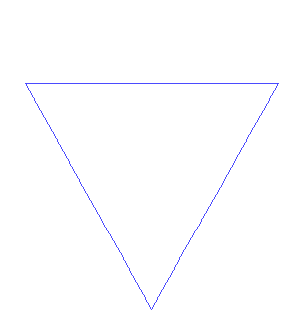The Independent Online (UK)
http://www.independent.co.uk/news/science/father-of-fractals-dies-at-85-2109421.html
Father of fractals dies at 85
Monday, 18 October 2010
The man whose mathematical method revolutionised our understanding of everything from economics to cauliflowers and coastlines has died of cancer at the age of 85.
Benoit Mandelbrot, a French mathematician, died in hospital in Cambridge, Massachusetts.

His work with fractals, a term he coined himself, applied mathematics to the natural world, and formulated a method to help understand its infinite complexity.
His seminal works, Fractals: Form, Chance and Dimension and The Fractal Geometry of Nature, were published in 1977 and 1982. In these, he argued that seemingly random mathematical shapes in fact followed a pattern if broken down into a single repeating shape.
"If you cut one of the florets of a cauliflower, you see the whole cauliflower but smaller," he explained at the influential Technology Entertainment and Design (TED) conference earlier this year.
"Then you cut again, again, again, and you still get small cauliflowers. So there are some shapes which have this peculiar property, where each part is like the whole, but smaller." The mathematical principle has been used to measure shapes previously thought unmeasurable, including coastlines and mountains.
It was also used to generate works of art and complex designs, including the landscape of planets in the film Star Trek II: The Wrath of Khan and the Death Star outline in Star Wars. Professor Mandelbrot also applied the concept to economics, but he was critical of the global financial system, believing it to be too complex to properly function. He had worked for IBM and became a professor of mathematics at Yale.
The French President, Nicolas Sarkozy, praised him for his "powerful, original mind that never shied away from innovation and battering preconceived ideas".
http://www.independent.co.uk/news/science/father-of-fractals-dies-at-85-2109421.html
Father of fractals dies at 85
Monday, 18 October 2010
The man whose mathematical method revolutionised our understanding of everything from economics to cauliflowers and coastlines has died of cancer at the age of 85.
Benoit Mandelbrot, a French mathematician, died in hospital in Cambridge, Massachusetts.

His work with fractals, a term he coined himself, applied mathematics to the natural world, and formulated a method to help understand its infinite complexity.
His seminal works, Fractals: Form, Chance and Dimension and The Fractal Geometry of Nature, were published in 1977 and 1982. In these, he argued that seemingly random mathematical shapes in fact followed a pattern if broken down into a single repeating shape.
"If you cut one of the florets of a cauliflower, you see the whole cauliflower but smaller," he explained at the influential Technology Entertainment and Design (TED) conference earlier this year.
"Then you cut again, again, again, and you still get small cauliflowers. So there are some shapes which have this peculiar property, where each part is like the whole, but smaller." The mathematical principle has been used to measure shapes previously thought unmeasurable, including coastlines and mountains.
It was also used to generate works of art and complex designs, including the landscape of planets in the film Star Trek II: The Wrath of Khan and the Death Star outline in Star Wars. Professor Mandelbrot also applied the concept to economics, but he was critical of the global financial system, believing it to be too complex to properly function. He had worked for IBM and became a professor of mathematics at Yale.
The French President, Nicolas Sarkozy, praised him for his "powerful, original mind that never shied away from innovation and battering preconceived ideas".
Last edited:


